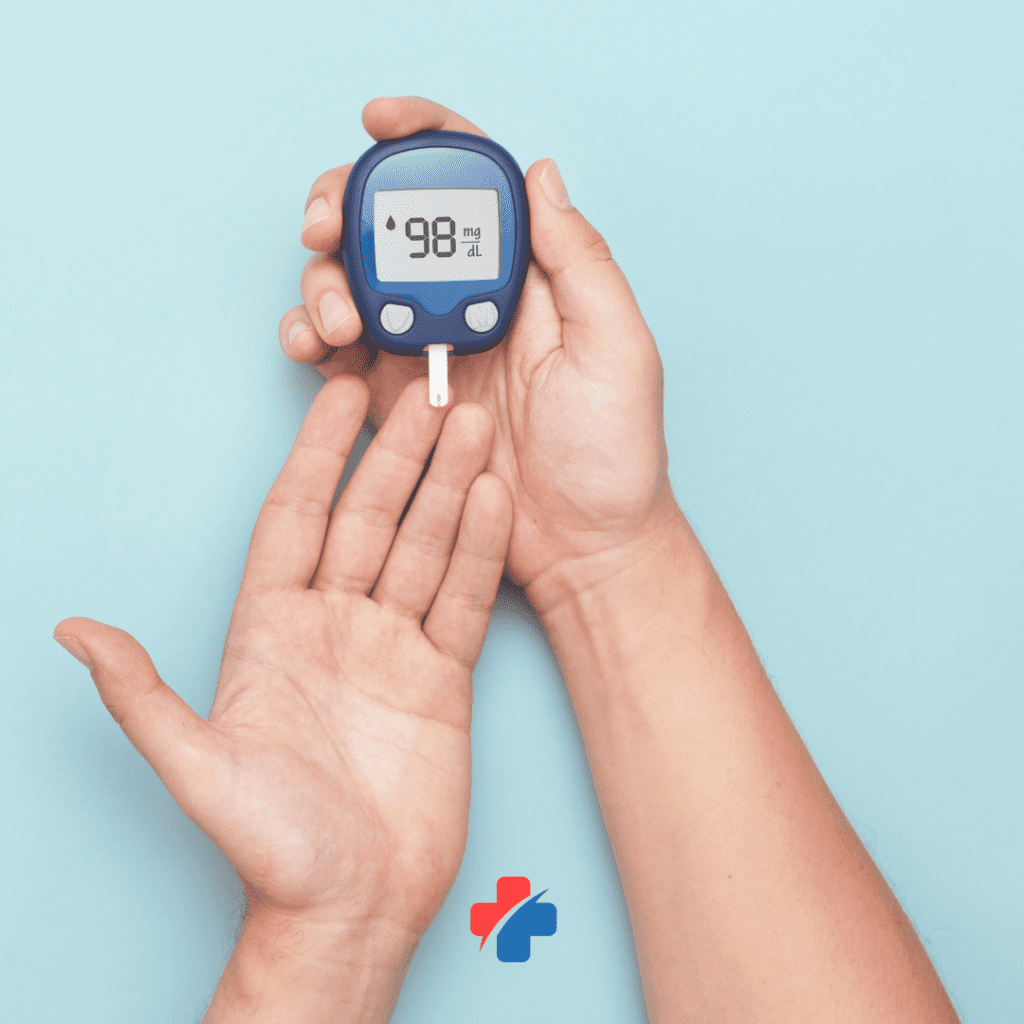The Domino Effect: How Unchecked Diabetes Can Impact Your Whole Body

Introduction: Diabetes is more than just a blood sugar issue; it’s a complex condition that affects various systems in your body. Uncontrolled diabetes can lead to severe complications, impacting your overall health and quality of life. At iCare ER & Urgent Care, we’re dedicated to educating our community about the importance of diabetes management and the potential consequences of leaving it unchecked.
Understanding Diabetes: Diabetes is a chronic condition characterized by elevated blood sugar levels. There are two primary types: Type 1 diabetes, where the body doesn’t produce insulin, and Type 2 diabetes, where the body either doesn’t produce enough insulin or becomes resistant to its effects. Regardless of type, the consequences of unmanaged diabetes can be profound.
The Domino Effect: Unchecked diabetes can set off a chain reaction of complications throughout the body. According to the Centers for Disease Control and Prevention (CDC), diabetes contributes to approximately 90-95% of cases of diabetic retinopathy, kidney failure, and lower-limb amputation in the United States.
How diabetes can impact various organs and systems:
- Cardiovascular System:
- Diabetes increases the risk of heart disease, stroke, and peripheral vascular disease.
- High blood sugar levels can damage blood vessels and nerves that control the heart and blood vessels, leading to heart attacks and other cardiovascular issues.
- Eyes:
- Diabetes can cause diabetic retinopathy, leading to vision problems and even blindness if left untreated.
- Regular eye exams are crucial for early detection and intervention.
- Kidneys:
- Diabetic nephropathy is a common complication of diabetes, affecting the kidneys’ ability to filter waste from the blood.
- Without proper management, it can progress to chronic kidney disease and kidney failure.
- Nerves:
- Diabetic neuropathy can cause numbness, tingling, and pain in the hands and feet.
- Left untreated, it can lead to severe complications, including foot ulcers and amputation.
- Skin:
- Diabetes increases the risk of skin infections and slow wound healing.
- Proper skincare and wound care are essential for preventing complications.
Managing Diabetes:
Fortunately, diabetes can be effectively managed with a combination of lifestyle changes, medication, and regular medical care:
- Diet and Exercise:
- Adopting a healthy diet rich in fruits, vegetables, whole grains, and lean proteins can help regulate blood sugar levels.
- Regular physical activity improves insulin sensitivity and overall health.
- Medication:
- Some individuals may require oral medications or insulin therapy to control blood sugar levels effectively.
- It’s essential to take prescribed medications as directed and monitor blood sugar levels regularly.
- Monitoring:
- Regular blood sugar monitoring helps track progress and identify any fluctuations that may require adjustments to treatment plans.
When to Seek Medical Treatment: Knowing when to seek medical treatment is crucial for preventing complications:
- Persistent high blood sugar levels despite medication and lifestyle changes.
- Symptoms of diabetic ketoacidosis (DKA), such as excessive thirst, frequent urination, nausea, and vomiting.
- Signs of severe complications, including chest pain, shortness of breath, vision changes, or numbness and tingling in extremities.
Conclusion: Unchecked diabetes can wreak havoc on your body, leading to serious complications and impacting your quality of life. By understanding the potential consequences and taking proactive steps to manage diabetes effectively, you can reduce the risk of complications and live a healthier, more fulfilling life. Whether you’re in Frisco, Fort Worth, Forney, or any surrounding areas in North Texas, remember that iCare ER & Urgent Care is here to support you every step of the way on your journey to better health.
FOLLOW US ON SOCIAL FOR MORE RELEVANT,
LOCAL HEALTH INFORMATION
